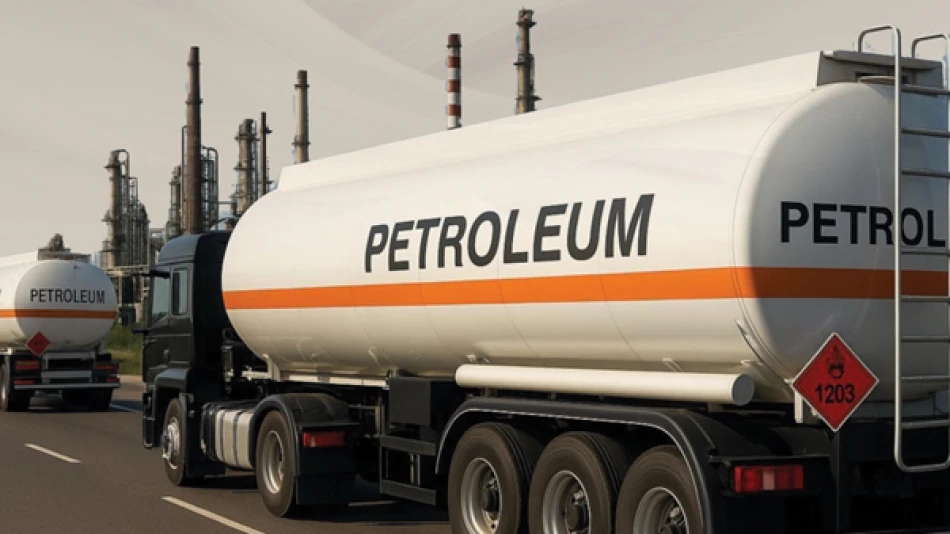
Ajman Bans Parking of Fuel Tankers in Unauthorized Areas, Enhances Public Safety
Ajman Cracks Down on Petroleum Transport Violations with Escalating Penalties
The Ajman government has implemented stringent new regulations targeting petroleum transport vehicles that park in unauthorized zones, introducing a tiered penalty system that could result in vehicle confiscation and public auction for repeat offenders. The move reflects growing regional emphasis on industrial safety and urban planning as Gulf states balance economic growth with public safety concerns.
Escalating Financial Penalties Target Repeat Violations
Under the new decree, vehicle owners face an initial fine of AED 5,000 ($1,360) for the first violation of unauthorized parking regulations. The financial consequences escalate significantly for repeat offenders, with second violations incurring AED 10,000 ($2,720) penalties.
The most severe consequences await third-time violators, who face AED 20,000 ($5,440) fines coupled with vehicle seizure and mandatory public auction. This progressive penalty structure mirrors enforcement strategies used across the UAE to deter industrial violations through economic pressure.
Enhanced Enforcement Powers and Immediate Response Protocols
The Ajman Higher Energy Committee has been granted comprehensive authority to monitor violations through specialized judicial enforcement officers. This centralized approach streamlines the detection and prosecution process, eliminating bureaucratic delays that previously hampered enforcement efforts.
High-Risk Area Protocols
Violations occurring in densely populated areas or locations posing public safety risks trigger immediate removal procedures at the owner's expense. This provision addresses growing concerns about petroleum transport safety in urban environments, where population density has increased dramatically over the past decade.
Industry Impact and Licensing Consequences
Beyond vehicle-specific penalties, the regulations empower authorities to impose additional sanctions on licensed petroleum facilities. These measures include suspension or complete revocation of petroleum handling permits, creating significant business continuity risks for non-compliant operators.
The licensing threat represents a particularly potent enforcement tool, as petroleum trading permits require substantial time and capital investment to obtain. For established businesses, permit revocation could effectively end operations, making compliance economically essential.
Regional Context and Safety Priorities
This regulatory tightening aligns with broader UAE initiatives to enhance industrial safety standards across the federation. Similar measures have been implemented in Dubai and Abu Dhabi, reflecting coordinated efforts to modernize hazardous material handling protocols.
The 30-day implementation delay provides industry participants with transition time to adjust operational procedures and identify compliant parking facilities. This grace period follows established UAE regulatory practices that balance enforcement needs with business adaptation requirements.
Economic Implications for Transport Operators
Petroleum transport companies will likely face increased operational costs as they secure compliant parking facilities and implement enhanced route planning systems. However, these investments may prove beneficial long-term by reducing accident liability and improving operational efficiency through better logistics coordination.
Most Viewed News

 Layla Al Mansoori
Layla Al Mansoori






